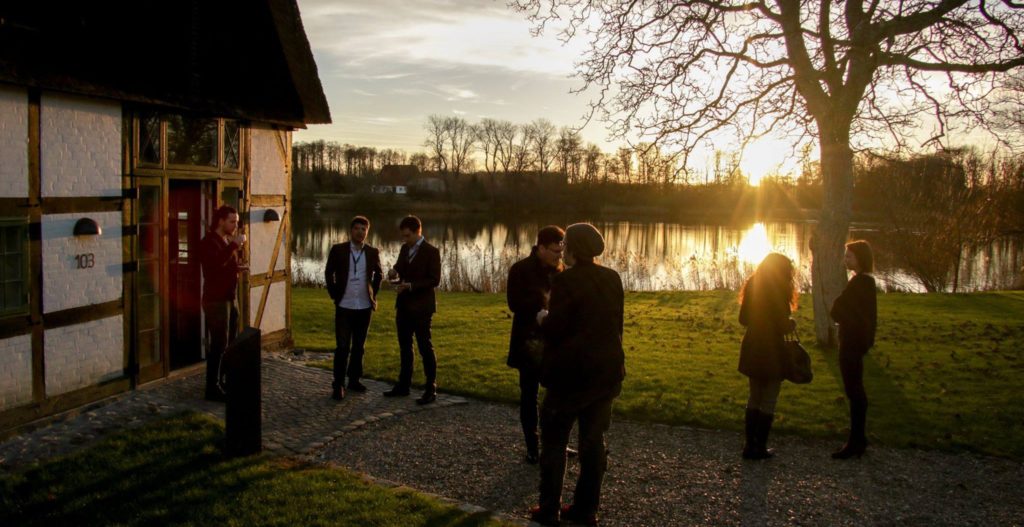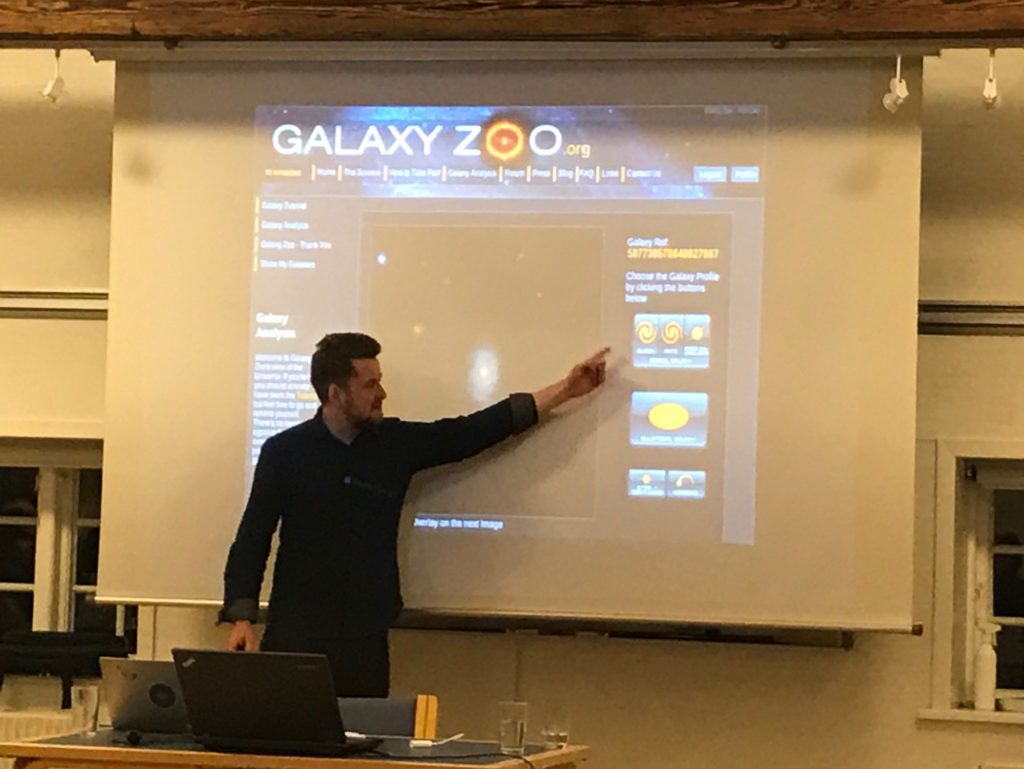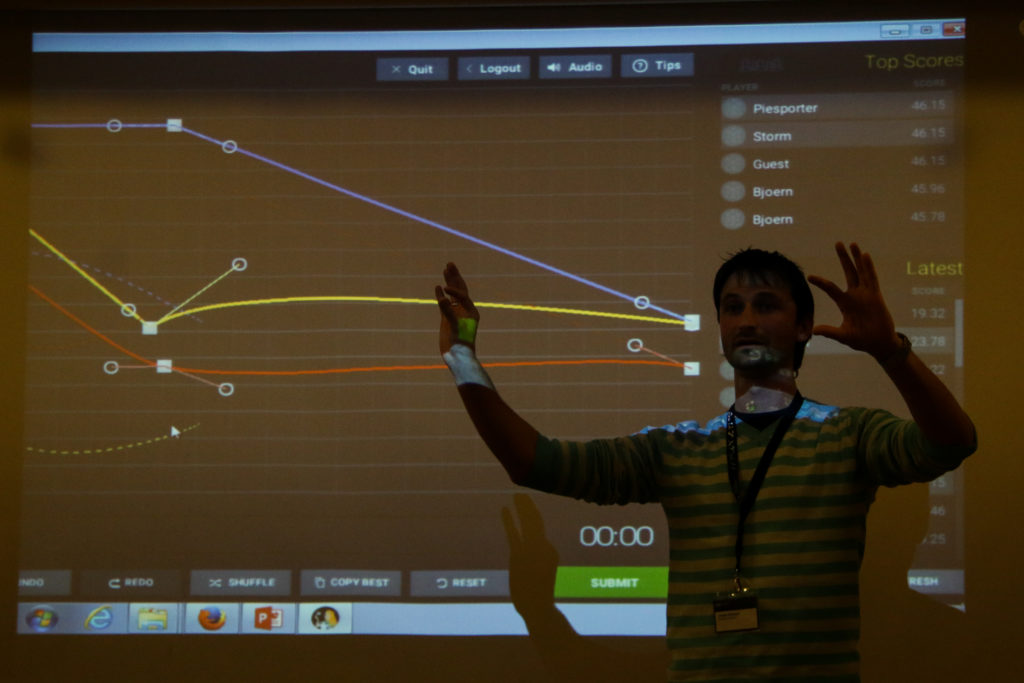Summit – Great Minds Think Diversely
In the final days of November, ScienceAtHome hosted the first ever Summit on Human Problem Solving and Artificial Intelligence (#hpsai, if you saw the little storm that we created on Twitter!) in the gorgeous Sandbjerg Estate in Southern Denmark. The beautiful grounds of the estate were left unexplored, as we launched into three intense and interesting days of talks about human intelligence, artificial intelligence, games and much more.

Citizen science projects coming together
As our project leader Jacob Sherson likes to point out, if you want to explore the border between human problem solving and artificial intelligence, you should look at citizen science. Here you will find many problems that algorithms cannot yet solve efficiently, but humans tackle very successfully! We were lucky enough to have representatives from many inspiring citizen science projects in Sandbjerg, with talks from projects like Zooniverse, Sea Hero Quest, EteRNA and Eyewire
We heard an interesting speech from Grant Miller, the communication lead (and a recovering astrophysicist) from Zooniverse. Zooniverse is a truly inspirational citizen science giant and it was great to hear how they keep their huge community of volunteer scientists engaged and entertained. (Hint, it’s has a to do with the frequency of zebras in wildlife pictures!) Did you know that Zooniverse is pretty selective about the projects it takes on, but that they now have a Project Builder where anyone can create a classification project?

At ScienceAtHome we often see how people excel at the difficult tasks we throw in their direction. It was great to see evidence of both EteRNA and Eyewire players doing the same. These projects are excellent examples of tasks that computer algorithms struggle with, but people tackle successfully. EteRNA had even created an EternaBot, which merges different player strategies from the Strategy Market, where most committed players share their best gaming strategies!
As a fantastic example of citizen science success stories, Fernando Portela told us how he turned from an EteRNA player with no experience of biochemistry to the lead developer of EteRNA! We know that citizen science is the gateway for anyone to become a scientist, but Fernando truly took this journey to a new level.
Finally, Ed Manley blew our minds with his talk on Sea Hero Quest. Sea Hero Quest collects data for dementia research in a game that takes the players on a sea monster hunt. With over 2.5 million downloads of the game, research has already gathered over 63 years of gameplay from players all around the world—we’re impressed. The team has only started to analyze the player data, but an interesting detail they have discovered so far is that Scandinavians are pro navigators!
Quantum games and a new alliance
Call us biased, but we love to see games based on quantum physics. For this summit we managed to get a hold of Simon DeWitt, the lead of MeQuanics, and James Wootton, who has developed a game called Decodoku. Both games are based on a pretty complex branch of quantum physics called topological quantum computing. Don’t be scared by the name, though—both games are fun and very approachable and you can definitely impress your friends and your boss by saying that you create quantum error correcting codes in your free time.

Games and simulations are increasingly popular as educational tools too! The QuViz project of Antje Kohnle is a beautiful demonstration of how concepts as difficult and abstract as quantum mechanics can be made exciting and engaging for students by clever design. Introducing games into the classroom gets students excited and also gives them a stronger sense of participation—with excellent results and higher grades.
We also had an exciting talk from Sabrina Maniscalco, one of the main organizers of the annual Quantum Game Jams. The idea of a game jam is for game developers, graphics and sounds designers and other interested people to get together for 48 hours and create games in small teams. Sabrina’s game jams have various themes from quantum mechanics and for instance this year some jammers made a beautiful VR game where players optimize quantum physics challenges!
One of the outcomes of the summit was the formation of a Quantum Alliance—an informal network of quantum games. We look forward to collaborating with all of these interesting projects and sharing news from them with all our followers!
Now we briefly summarized which citizen science project representatives gathered together for our Summit on Human Problem Solving and Artificial Intelligence and also introduced the new idea of a Quantum Alliance. However, there is still a lot more happened! Stay tuned for our next blog post which will reveal more about the discussed topics!

Comments